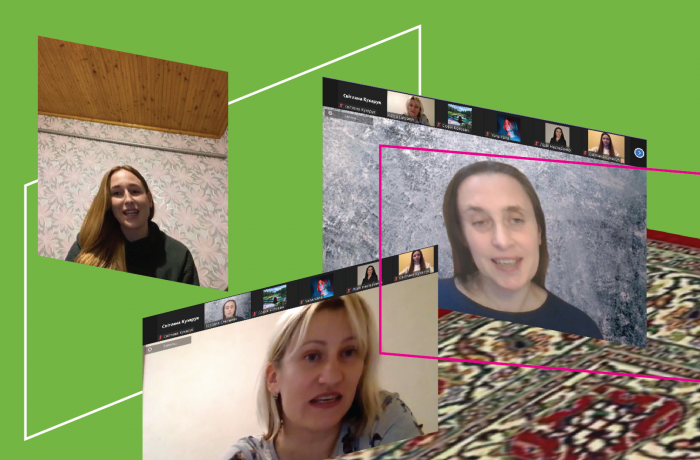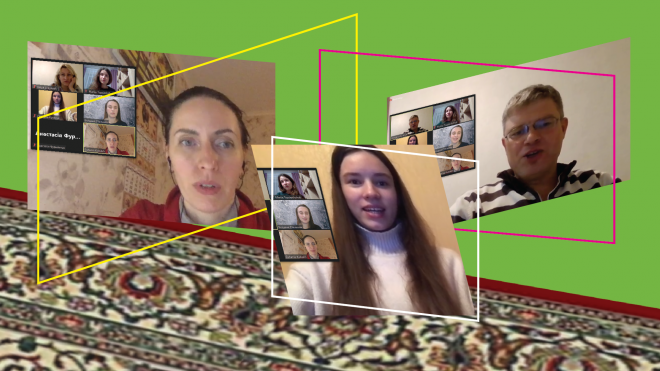Discussion on partnered childbirth and mutual support followed the screening of the film Unseen at the Travelling Docudays UA in Rivne Region
Discussion on partnered childbirth and mutual support followed the screening of the film Unseen at the Travelling Docudays UA in Rivne Region

On 12 November, a screening and discussion of the film Unseen by Maia Martiniak took place in Rivne Region within the Travelling Docudays UA. The film opens up the controversial and often taboo topic of birth trauma. Anastasia Furmanchuk, obstetrician-gynecologist, Yevhenia Kubah, human rights activist, expert of Together for Safe Childbirth! campaign, Co-founder of the Natural Rights Ukraine NGO, Kateryna Lukianyk, and Mykhailo Lukyanyk joined the discussion. They shared their experience of partnered childbirth. Bohdana Stelmakh, the Regional Coordinator of the Travelling Docudays UA in Volyn Region, moderated the discussion. Svitlana Kukharuk, the Coordinator of the Travelling Docudays UA in Rivne Region, wrote down the key points of the discussion.
Kateryna Lukianyk, a mother of many children, told about her own experience of childbirth:
"When you get to the hospital, you undergo procedures, but you don't always know what's going on and why. I would like to have the opportunity to talk to the doctor before the childbirth, every single detail."
Bohdana Stelmakh shared the following thoughts:
"There is a disrespectful attitude towards women during childbirth in our society. It is not so important what you feel, only completion of the birth process matters";
"A man in childbirth is seen as a deterrent for doctors, but we have to talk about medical responsibility, about doctors' respect for the person who gives birth."

Anastasia Furmanchuk spoke about the importance of the stage of preparation for childbirth:
“It is necessary to prepare for childbirth both the person who gives birth and partner or another accompanying person. I recommend those who give birth and their partners to attend parenting classes, where you can learn more about pregnancy, postpartum childbirth, breastfeeding, etc.";
“Partnered childbirth is also a way of communication between the person giving birth and the doctor. During childbirth, the partner can have a more clear perception of the situation and explain to the person giving birth what is happening”;
"Every seventh person who gives birth faces postpartum depression. For some, childbirth is not as difficult as the postpartum period. I advise my family to pay attention to any negative manifestations during this period and be sensitive to the person’s feelings. "
Mykhailo Lukyanyk shared his experience of partnered childbirth and highlighted key arguments for partnered childbirth:
“Nowadays, family births give partners not only a sense of love but also a sense of responsibility to each other for the future. You both understand that your child's happiness is now in your hands";
"During childbirth, it is enough to stand next to each other, hold hands and talk — those are key elements of confidence and peace for your partner."
Yevhenia Kubah told about the website of the NGO Docudays’ Nationwide Campaign Together for Safe Childbirth! and the importance of protecting rights during childbirth:
"The most common violations of rights during childbirth are failure to inform the person giving birth about what is happening, failure to provide information in a timely and in a full manner which could help person giving birth to perform independent decision-making";
"Partnered childbirth doesn't imply that it is a partner who should be necessarily present in childbirth. In fact, it can be anyone whom the mother who gives birth considers as an important person, a relative, or, for example, a doula (this case is not so common, but is also practiced).
The video recording of the discussion is available here












